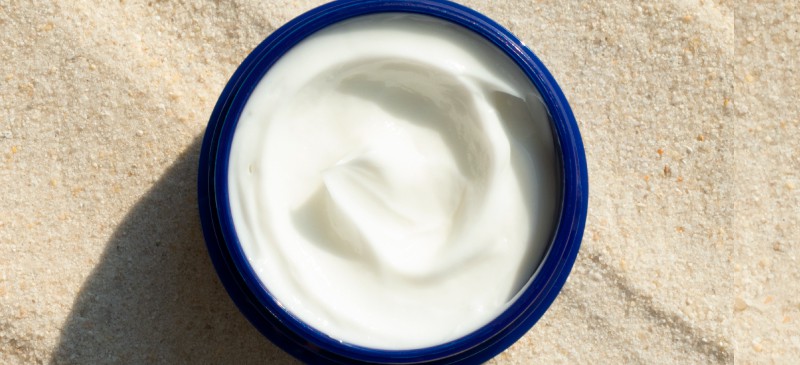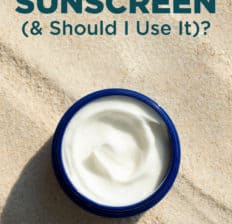This Dr. Axe content is medically reviewed or fact checked to ensure factually accurate information.
With strict editorial sourcing guidelines, we only link to academic research institutions, reputable media sites and, when research is available, medically peer-reviewed studies. Note that the numbers in parentheses (1, 2, etc.) are clickable links to these studies.
The information in our articles is NOT intended to replace a one-on-one relationship with a qualified health care professional and is not intended as medical advice.
This article is based on scientific evidence, written by experts and fact checked by our trained editorial staff. Note that the numbers in parentheses (1, 2, etc.) are clickable links to medically peer-reviewed studies.
Our team includes licensed nutritionists and dietitians, certified health education specialists, as well as certified strength and conditioning specialists, personal trainers and corrective exercise specialists. Our team aims to be not only thorough with its research, but also objective and unbiased.
The information in our articles is NOT intended to replace a one-on-one relationship with a qualified health care professional and is not intended as medical advice.
Best Mineral Sunscreen to Use (Plus Benefits & Comparisons)
August 14, 2021

One of the biggest concerns when it comes to wearing sunscreens, including mineral sunscreen, is whether or not you can absorb their chemicals through your skin and if this is potentially dangerous.
Something that most people don’t realize is that in the U.S., the Food and Drug Administration regulates sunscreen as if it’s an over-the-counter drug rather than a cosmetic product. This means that strict regulations are in place to make sure that sunscreens are safe, whether we’re talking chemical or mineral sunscreens.
According to the website Cnet, “The Food and Drug Administration (FDA) is working to more tightly regulate the US sunscreen market and find out which ingredients in currently approved sunscreens, if any, are harmful to human health.”
So based on what we know, what is the best sunscreen? Is mineral sun block considered a more “natural sunscreen” that is overall the best option?
Let’s investigate below how different sunscreens compare and what to look for overall when choosing one.
What Is Mineral Sunscreen?
Sunscreens fall into two basic categories: chemical and physical. Dermatologists tell us that both types are effective at preventing UV damage to the skin. This helps lower the risk for sunburns, signs of aging, including wrinkles, and skin cancer.
Mineral sunscreen is considered a type of physical sun block.
Two of the biggest differences between the two types of sunscreens is how easily they are absorbed into the skin and how they work to block sun damage.
Chemical types tend to rub in and dissolve more easily and work by absorbing UV light. Mineral sunscreens, on the other hand, can be harder to rub in (they often leave behind more of a white residue) and work more like a shield by blocking the sun’s rays from penetrating the skin.
Benefits/Uses
1. Helps Prevent Sun Damage and Risk for Skin Cancer
Getting a bit of direct sunlight exposure most days can be very health-supporting in many ways because it helps you avoid vitamin D deficiency — plus it’s good for your mood and circadian rhythm (your internal clock).
However, you don’t want to overdo it and suffer a damaging burn. This is where sunscreen comes into play.
Minerals including zinc oxide has been found to offer protection against “broad spectrum ultraviolet rays” (UVA/UVB). This is not always the case with chemical sunscreens that only block one type of UV light.
2. Can Reduce Signs of Aging and Potentially Breakouts
Mineral sunscreen can help prevent future sun damage, wrinkles and sun spots, while also helping improve synthesis of new skin tissue and collagen, a key substance needed to maintain skin’s youthful appearance. The body requires zinc and other trace minerals for the synthesis of collagen that helps build and repair connective tissue.
Zinc oxide may also help lower the appearance, severity, duration and pain of cystic/hormonal acne blemishes and breakouts.
3. Isn’t Absorbed Into the Skin as Easily
Mineral sunscreen contains ingredients that basically sit on top of the skin’s surface and deflect UV rays. These ingredients, such as zinc oxide, are not easily absorbed into pores, so there’s less risk that you’ll have chemicals from sun block entering into your bloodstream and body.
While zinc and other “natural sunscreen” ingredients can feel thick on the skin, they are usually easy to wash off with water and unlikely to stay on your skin long enough to cause any serious side effects.
Mineral vs. Chemical Sunscreen
Which ingredients are used in these sun blocks?
As mentioned above, these two types of sun blocks differ in terms of their ingredients, how much residue they leave on the skin and how they work.
Chemical sunscreens are often made with ingredients including:
- oxybenzone
- avobenzone
- octisalate
- octocrylene
- homosalate
- octinoxate
These are easily absorbed into the skin, where they act like a sponge to soak up UV rays.
One potential problem with commercial sun blocks is that individual chemicals often work by blocking either UVA or UVB rays but not both types. This means that chemical sunscreen manufacturers need to combine several different formulas/solutions into one product to prevent burns from happening.
The more chemicals that are added, the higher the chances are for negative reactions, allergies and irritation.
Mineral/physical sunscreens on the other hand are made with ingredients including zinc oxide or titanium dioxide. These tend to feel thicker and stickier, which is one reason why chemical sunscreens are often more appealing to some people. (They won’t leave your skin looking white and shiny.)
Can sunscreen be absorbed into the skin?
Chemical sunscreens have been shown to contain ingredients that can make their way into your bloodstream in small amounts, but the FDA has stated that there isn’t data showing that any FDA-approved chemical sunscreens are harmful to human health. However, not every expert agrees with this statement.
Zinc oxide, found in mineral sunscreen, is not naturally occurring, but rather created when zinc is chemically heated and combined with oxygen molecules. The two elements are vaporized, condensed and formed into a powder that is fine, white, crystallized and sits on top of the skin, providing a protective layer, but it won’t be absorbed into the bloodstream.
Is mineral sunscreen better than chemical?
In February 2019, the FDA proposed that only two ingredients commonly found in sun blocks that are currently approved in the U.S. be classified as “generally recognized as safe and effective” (GRASE). These ingredients are zinc oxide and titanium dioxide, the minerals that are found in mineral sun block.
As of July 2021, the FDA says that there are 12 other ingredients found in sunscreens that the FDA is working on gathering more data on regarding safety and effectiveness. At this time, the FDA still allows these ingredients to be used.
The FDA did note that two ingredients found in some chemical sunscreens — para-aminobenzoic acid (PABA) and trolamine salicylate — do potentially pose risks and should not be used in place of safer ingredients.
There’s also the potential for chemical sunscreens (and any type of sun block, really) to sometimes be contaminated with harmful substances. For example, in June 2021, Johnson & Johnson voluntarily recalled five NEUTROGENA® and AVEENO® aerosol sunscreen product lines due to detection of small amounts of benzene, which is known to be a human carcinogen.
Which is better, mineral or physical sunscreen?
These terms are actually used to describe the same types of sun blocks. Another name for mineral sun block is physical sunscreen.
What to Look for in Mineral Sunscreen
Which mineral sunscreen is best? The Environmental Working Group (EWG) top sunscreen picks include organic mineral sunscreens that are made with ingredients like zinc oxide.
Each year the EWG sifts through dozens of sunscreen label claims, ingredient lists and scientific studies to analyze what’s really in those sunblock bottles. It recommends choosing sun blocks with SPFs of 30+ that are mineral-based, made for sensitive skin and that contain mostly organic ingredients.
A few brands to look for include Aveeno Baby, Babyganics, Bare Republic, Blue Lizard Australian and CeraVe Baby.
Keep these tips in mind when looking for the best mineral sunscreens:
- Read ingredients carefully, and look for the words zinc oxide. This means the product has broad-spectrum blocking abilities.
- Apply mineral sunscreen about 30 minutes before you head outdoors. Be careful not to miss sensitive areas like the tops of the ears, back of the neck, lips, top of the head and your feet.
- Be cautious of whether any medications you take might make you more photosensitive.
Risks and Side Effects
Sunscreen should not be your first line of defense against the sun. In fact, avoiding peak sun overexposure, wearing sun-protective clothing and hats, and spending some time in the shade are better measures.
Consider staying out of the sun between 10 a.m. and 3 p.m. if you’re very sensitive to burns.
Even when you do wear sun block, be careful about what other skin products you apply when heading into the sun, such as products made with retinol, vitamin A or vitamin C. These can increase photosensitivity and potentially contribute to burns.
If you have an allergy to any known mineral, such as zinc, be very careful about using mineral sunscreen, and speak with your doctor about alternatives.
Conclusion
- What is mineral sunscreen? It’s also called physical sun block and is a type of barrier cream that stops UV rays from penetrating the skin’s surface. Benefits of wearing this type of more “natural sunscreen” include preventing sunburns, signs of damage and potentially skin cancer.
- Chemical sunscreen is different because it contains ingredients that can be absorbed by the body. More information is needed to determine which health implications they may have.
- When searching for the best mineral sunscreen, look for the words zinc oxide. This means the product has broad-spectrum blocking abilities.





